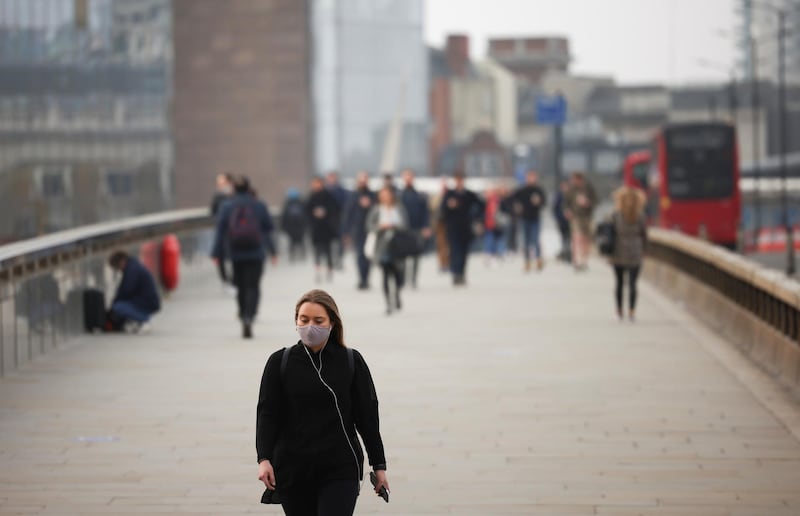One in three Covid-19 survivors had neurological or psychiatric problems diagnosed within six months of infection, a study published in The Lancet Psychiatry journal said.
The study of mostly American Covid-19 patients looked at more than 230,000 health records and 14 neurological and mental health disorders.
The most common diagnoses after Covid-19 infection were anxiety disorders (17 per cent of patients), mood disorders (14 per cent), substance misuse (7 per cent), and insomnia (5 per cent).
Neurological problems were lower, with 2.1 per cent for ischaemic stroke, 0.6 per cent for brain haemorrhage, and 0.7 per cent for dementia.
Risks of a neurological or psychiatric diagnosis were greatest in, but not limited to, patients who had severe Covid-19.
The study also found that neurological or psychiatric diagnoses were made for 38 per cent of those admitted to hospital, 46 per cent in intensive care, and 62 per cent in those who had encephalopathy during their Covid-19 infection.
Overall, the estimated incidence of being diagnosed with a neurological or mental health disorder after Covid-19 infection was 34 per cent.
For 13 per cent of these people it was their first recorded neurological or psychiatric diagnosis.
“These are real-world data from a large number of patients,” said Prof Paul Harrison of the University of Oxford, who was lead author of the study.
“They confirm the high rates of psychiatric diagnoses after Covid-19, and show that serious disorders affecting the nervous system occur too.
"While the latter are much rarer, they are significant, especially in those who had severe Covid-19.
“Although the individual risks for most disorders are small, the effect across the whole population may be substantial for health and social care systems due to the scale of the pandemic and that many of these conditions are chronic.
“As a result, healthcare systems need to be resourced to deal with the anticipated need, both within primary and secondary care services.”
The authors also looked at people who experienced flu and other respiratory tract infections over the same time to help understand whether these neurological and mental health complications were linked specifically to Covid-19.
The study took into account factors such as age, sex, ethnicity and existing health conditions.
There was overall a 44 per cent greater risk of neurological and mental health diagnoses after Covid-19 than after flu, and a 16 per cent greater risk than with respiratory tract infections.
As a result, the authors say that Covid-19 does lead to a greater risk of neurological and psychiatric disorders than these other health conditions.
The authors noted several limits to their study. First, the completeness and accuracy of the electronic health records is not known.
Second, many people with Covid-19 have mild or no symptoms and do not seek health care.
Therefore, the people studied here are likely to have been more severely affected than in the general population.
Third, the severity and course of the neurological and psychiatric disorders is not known.








